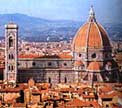|
September 16, 2002 Mr. Sedivy's Site Has Moved Please Use the NEW Site!
|

|


|
|
|
Mr. Sedivy's
More Features:
|
Highlands Ranch High School - Mr. Sedivy - Helpful
Information for Students - Critical Book Review Info A critical book review is based on careful analysis and interpretation of a piece of literature. In the course of a book an author presents a variety of information and viewpoints, it is the critic's job to evaluate both the basic text and its information and the author's effectiveness as a writer. There are no simple answers as to what exactly should be the focus of the review. Understanding an author's literary work and purpose takes time and consideration. Only after a thorough reading of the piece and serious contemplation can a reader begin to analyze and interpret the more subtle facets of a literary work. Deciding what to write about can be a very difficult proposition.
If the work under review is a work of fiction, the critic should consider
things like the setting of the story, the plot, and characters, as
well as historical accuracy. A work of nonfiction should be considered
for its general description of the period, people or events in question;
the author's interpretation or explanation of the aforementioned items
in regards to their importance in a broader historical sense; and,
the author's ability to sway his reader to his particular historical
interpretation. Because it is the critics job to both relate the author's main ideas and overall effectiveness of the literary work, it is essential that the critical review be well organized, supported in its generalizations and interpretation of the piece with examples and/or quotations, and logically explain the critics final judgment about the general quality of the work being reviewed. This means the critic must develop a solid introduction of the thesis and course of the review, support it with sound and well developed textual paragraphs and provide a basic summary or concluding statement. Limit the Critique Fiction The message of a novel is contained in its plot and
characters and conveyed by artful manipulations of language. To critique
a work of fiction, the critic must keep the following in mind. 2. Take
brief notes as you read: Nonfiction The critic of nonfiction must constantly challenge the author, asking
questions to test what is and is not believable in the author's work. To help answer these questions, the critic should: 1. Take notes during the reading regarding the most important facts and whether he/she is fully convinced of their validity. Identify the major arguments the author advances for his / her interpretation and whether it is logical and adequately supported by documentation. 2. Write down all emotional and intellectual responses to the text as soon as reading has been completed. 3. Go back over all such notes and write down the major arguments of the text and how well they hold up after critical evaluation. Save all such notes until final completion of the critical review. Note: A critical book review is not just a paraphrasing or recounting of the story or information presented by the author. It is a critical analysis of the author's work in regards to both the story or information presented and the effectiveness of that presentation. Assignment Requirements and Directions To begin, read the book. Bluffing or faking is cheating, and will not only result in a zero, but is embarrassing to all concerned. The review should be typed and double spaced using 12-point font. 1. The first portion of the critical review must have a title page with the title presented in correct bibliographical form. A few examples of the form to use follows: Duffus, R.L. The Santa Fe Trail. New York: David McKay Co., Inc., 1975. Frazer, Robert W. Forts Of The West. Norman: University of Oklahoma Press, 1965. Each title page must also provide the name of the student, course title, instructor's name and date of completion. You will first submit a bibliography for Mr. Sedivy’s approval no later than two days following library selection day. 2. The second portion of the review is a brief summary of the contents of the book. This should be two pages in length. Often this enables the teacher to determine whether you read the book, for example one student submitted an excellent review... on the first seventeen pages of the book. 3. The third portion is the most important. This is your opinion regarding the book. Compare the book to other books or known facts and don't be afraid to be critical. Was the book easy to read and follow? What do you think the author was trying say? Was the author successful in his/her mission? Finally, would you recommend this book to a friend? Remember, back your opinions with facts or examples. Study tip: Use spelling and grammar checks. This part should be two to three pages in length. 4. No critical review is to be shorter than three nor longer than five pages. 5. Each critical review will have a total point value of 500 points and will be graded on the basis general content and readability (general grammar, spelling, etc.). 6. Critical reviews will be due four weeks from the time the assignment is given to the class. In addition, all students are required to show evidence of their work any time during the four weeks. If any questions or problems arise, immediately contact Mr. Sedivy! Warning - NO LATE PAPERS WILL BE ACCEPTED - EVEN IF YOUR ABSENCE IS EXCUSED! This is a long-term project and you have adequate time to prepare. Critical Book Review Examples
|
Highlands Ranch High School ![]() 9375 South Cresthill Lane
9375 South Cresthill Lane ![]() Highlands Ranch, Colorado 80126
Highlands Ranch, Colorado 80126 ![]() 303-471-7000
303-471-7000
Mr. Sedivy's History Classes
| Colorado History | American
Government | Advanced Placement Modern European
History | Rise of Nation State England | World
History |
World History: Dawn of Civilization
to Napoleon - Units of Study
| Prehistory | Mesopotamia
& Phoenicians | Ancient Egypt | Greece
| Rome | Medieval History
| Renaissance and Reformation | Exploration
| National Monarchies |
| The Scientific Revolution and the Enlightenment
| Colonial America and the American Revolution
| The French Revolution and the Napoleonic Era |
| Home | Back to top of page | Site Contents |
